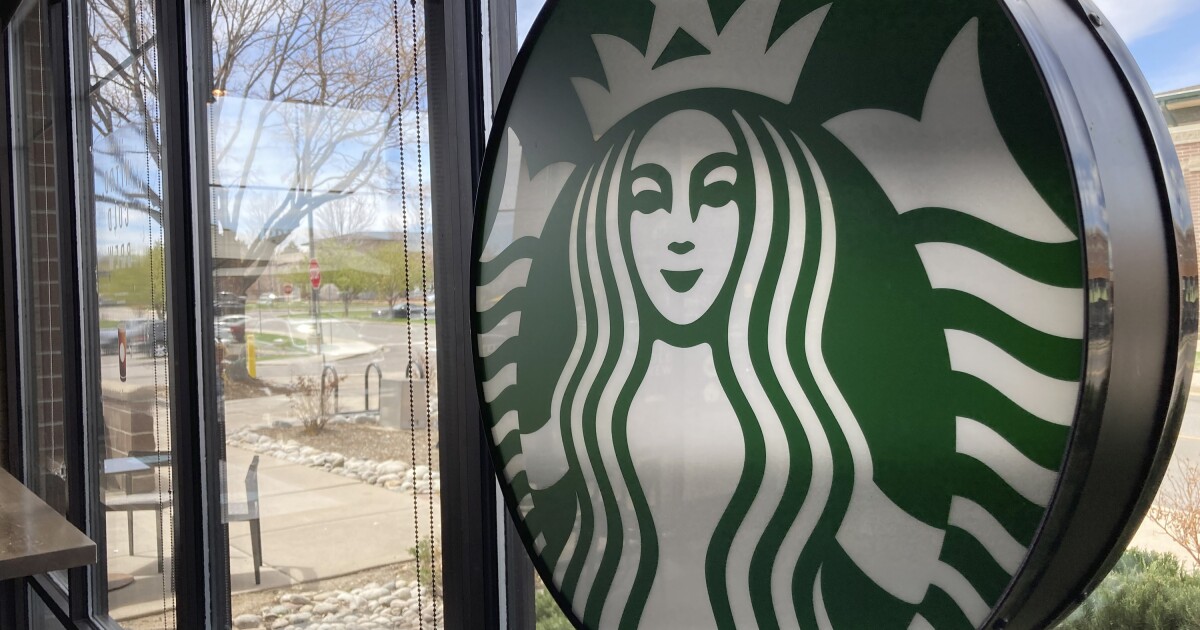Workers at a Starbucks in Santa Cruz have filed a labor petition with the National Labor Relations Board, the first California store to join a growing national campaign to organize baristas and shift supervisors at the coffee giant.
Twenty-two of the store’s 31 workers have signed union cards, said Joseph Thompson, a shift manager at Starbucks who is leading the organizing efforts.
Thompson said the Santa Cruz store has a high rate of incidents of harassment, indecent exposure and threats of violence, and employees don’t feel supported by management or company leaders. . Union discussions began in November and the petition was filed on Friday afternoon.
In early December, a Starbucks store in Buffalo, NY, voted to form the chain’s first union in the United States. Since then, workers at a cascade of stores across the country have announced their own organizing drives to join the union, Starbucks Workers United. The organization is part of Workers United, a subsidiary of the giant Service Employees International Union.
“We know that at the end of the day, they don’t care about us,” said Thompson, who has been with the company for two years and has seen Starbucks give hazard pay and extra food benefits, then slapped them. cancelled, even as the pandemic drags on.
A group of 13 former and current workers at the Santa Cruz store said they had a “moral obligation to organize” in a letter to the company’s general manager.
Salaries don’t cover the cost of living in Santa Cruz, baristas are scheduled to work unconsulted shifts on days they aren’t free to work, and workers of color aren’t respected by management , wrote former worker Katheline Vanegas in a statement attached to the letter. She alleged that baristas are sometimes not paid for the full time they have worked, with timesheets being edited out if they show up later than the time they are scheduled for.
She criticized the company for mishandling a large number of security incidents that began to occur during late hours: “Rather than hiring a security guard to keep the baristas safe, the police were called in to drive around the area and treat the homeless like criminals.”
“The day I quit, other partners decided enough was enough too, and partners will continue to quit or unionize until Starbucks does something about these company-wide issues. company,” Vanegas wrote.
Starbucks spokeswoman Sarah Albanesi said she didn’t have enough information to address the store’s specific issues and said the company is “listening and learning from this store’s partners, as we are still doing across the country.”
Albanesi said the company opposes a union. She referenced a statement from Rossann Williams, president of Starbucks North America, released last month after the Buffalo union vote.
“What we love most about Starbucks is having partners who work directly with care, partnership and respect. From the beginning, we have been clear in our belief that we do not want a union between us. as partners, and that belief hasn’t changed. However, we’ve also said that we respect due process,” Williams said.
After the U.S. Supreme Court blocked the Biden administration from enforcing a vaccination mandate for large employers last week, Starbucks announced it would no longer require its U.S. employees to be fully vaccinated or subject to weekly coronavirus testing – one of the most prominent companies to do so.
The Santa Cruz store temporarily closed earlier this week due to the number of staff in isolation due to COVID-19, and likely won’t reopen for about a week, workers said.
The NLRB received 28 petitions from Starbucks store workers across the country. Two Buffalo stores have already obtained union certification. A handful of other stores in Buffalo have their election dates set, but the majority are in the early stages of the process, according to the labor board.
“I don’t think anyone really expected the explosive response we received,” said Ian Hayes, an attorney working with the union who filed the Santa Cruz store’s petition, as well as the store’s previous petitions. from Buffalo.
The experience of going through the pandemic as food service workers exposed already existing inequalities and “made people feel a sense of urgency to take control of their lives,” Hayes said.
He alleges that Starbucks has raised baseless challenges on every petition so far, forcing the parties through a formal administrative hearing process before the NLRB can order an election. “It slowed down the process considerably in each case,” he said, adding that the labor board “completely, completely dismissed the argument as nonsense.”
If the company goes the same way with the Santa Cruz store, it would take the labor board about two months to set an election date, Hayes said.




